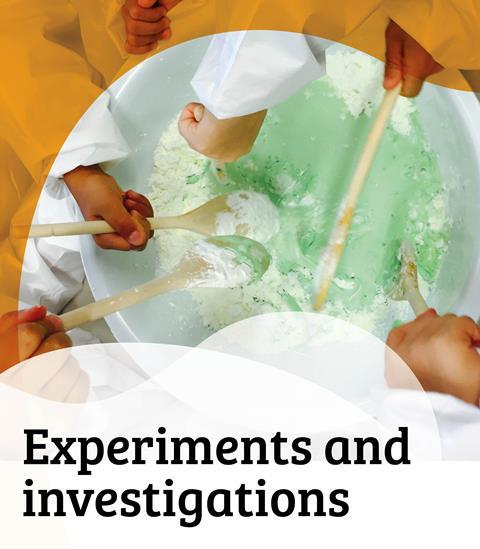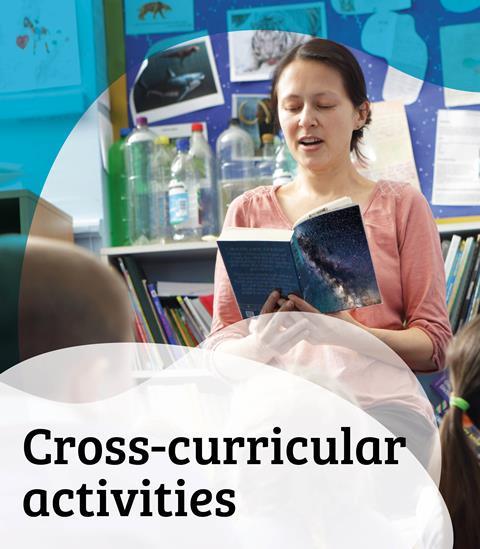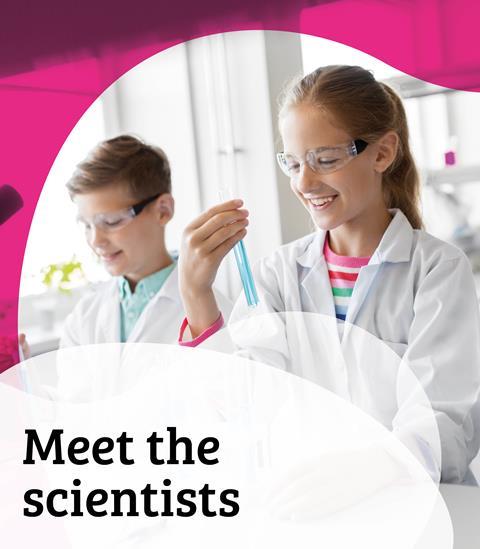Try this investigation to allow learners to explore the effect of heat on gases
This resource is also available in Welsh and Irish
Get the Welsh language version.
Get the Irish language version.
This experiment focuses on gases and air pressure. First watch the video on how to carry out the ‘sticky cups’ demonstration, then find out how your learners can investigate how gases expand using water, a bottle and a balloon.
Learning objectives
- To understand that air is a fluid: it flows, can change shape and fills its container.
- To learn that when air is warmed, the gases expand due to the increased heat.
- To learn that particles in a gas move around and when heated, this movement is quicker and causes an expansion of the air inside its container.
- To understand that when we consider the force of air over a specific area, we call this air pressure.
Enquiry skills:
- Identify variables that can be changed, measured and controlled.
- Record observations and explain what has been found.
Watch the video
The video below shows how to carry out the ‘sticky cups’ demonstration.
Download the supporting materials
Set up and run the investigation with your class using the teacher notes and classroom slides, featuring a full equipment list, method, key words and definitions, questions for learners, FAQs and more.
Teacher notes
Classroom slides
What do learners need to know first?
Learners should understand the particle differences between solids, liquids, and gases. They should recognise that gases cannot be seen. They should be aware that air is made up of different gases and is all around us, and that gas particles move around freely.
Equipment list
Demonstration:
- 2 identical translucent plastic cups
- Kettle
- Kitchen roll
- Plastic beaker
Individual investigation (each group will need):
- Balloon
- 500 ml plastic drink bottle
- 2 bowls
- Hot water (hot from tap, but not boiling)
- Ice and water
Additional resources
- Investigate air pressure further in our leaky bottle investigation or antigravity bottle investigation.
- Investigate the properties of gases further in our freaky hand investigation or fire extinguisher investigation.
- Read up on solids, liquids and gases in this That’s Chemistry! textbook chapter.
- Introduce your learners to solids, liquids and gases with our primary science podcast.
Downloads
Sticky cups: teacher notes
Editable handout | Word, Size 3.19 mbSticky cups: teacher notes
Handout | PDF, Size 0.27 mbSticky cups: classroom slides
Presentation | PowerPoint, Size 8.71 mbSticky cups: classroom slides
Presentation | PDF, Size 2.04 mb
Additional information
Primary science investigations were developed in collaboration with the Primary Science Teaching Trust

Primary science investigations
- 1
- 2
- 3
- 4
- 5
- 6
- 7
- 8
 Currently reading
Currently readingProperties of gases, air pressure and ‘sticky’ cups
- 9
- 10
- 11
- 12

























No comments yet